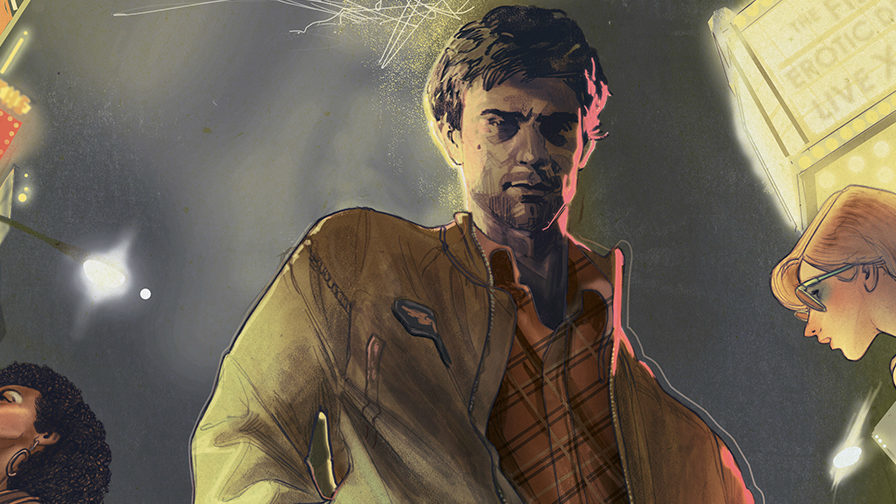Taxi Driver Review

Themes And Interpretations
Roger Ebert has written of the film’s ending:
Many have discussed the ending. Here we see newspaper clippings about Travis “heroism” in saving Iris. Betsy rides into Travis’s cab and shows him her admiration, instead of her initial disgust. What is the point of this fantasy scene? Travis survived the shootout. Are we experiencing his dying thoughts? Can this sequence be taken literally? … It is not clear that there are any answers to these questions. This sequence is music and not drama. It concludes the story at an emotional level, rather than a literal one. Scorsese’s main characters are not looking for carnage; they want redemption.
Taxi Driver’s perfect end is a collaboration between Scorsese & Paul Schrader. The epilogue, which lasts five minutes and is rich in irony highlights the fateful twists of destiny. The media builds Bickle into a hero, when, had he been a little quicker drawing his gun against Senator Palantine, he would have been reviled as an assassin. At the conclusion of the film, Bickle has been accepted as a role model citizen. He takes on drug dealers and pimps in an effort to save a small girl.
Scorsese also provided LaserDisc audio commentary. He acknowledged the opinions of critics who interpreted the film’s end as Bickle’s last dream. Bickle is seen gazing at an ineffable object and admits that it suggests Bickle might become erratic and reckless later on.
Paul Schrader, writer for the 30th-anniversary DVD comments that Travis “isn’t cured by this movie’s end” and that “he won’t be a heroic hero next year.” Reddit user Schrader stated that the ending of the film was not meant to be taken as dream sequence. Instead, he imagined it returning to the beginning as if “the last frame could be spliced to a first frame and then the movie would start all over again.” This film is also connected to the 1970s Wave of Vigilante Films and was praised as an alternative New Hollywood version of many of the exploitation vigilante films.
Taxi Driver is a film that has similarities to vigilante films in the 1970s. However, Taxi Driver was explicitly identified as not being either a vigilante-film or belonging the the 1970s vigilante cinema wave.

Positive Reviews
A Taxi Driver received positive reviews upon its release. Rotten Tomatoes rated the movie 96% on the basis of 28 reviews with an average rating 7.3/10. Its review consensus says that A Taxi Driver adds a fresh perspective, a light touch and an understanding to a sobering story. The film received a Metacritic score of 69 from 100, calculated based upon 7 reviews. This indicates that the movie has been given a “generally positive review”.
Sohing Yan Chan from OFF SCREEN mentioned A Taxi Driver, “a film depicting a history trauma”, and suggested that the worldwide audience, including those who are not familiar with it, learn more.
The director also suggested to the movie that it adopt a Hollywood-style narrative structure, giving audiences the chance to experience the “roller coaster of emotions” that is presented by the film in a very workmanlike manner.
Jennie Kermode of Eye For Film shared the relevant ideas that the director didn’t ignore the peaceful and lovely moments besides the violent, panic and horrible scenes, and it created a contrast in emotion and let audience keep shocking or plunge into consideration.
This film’s cinematography received more attention. Sheri Linden, of The Hollywood Reporter said that the film’s cinematography captured “metal-on–metal violence”, especially during the checkpoint scene. The mountain-road chase scene was also exaggerated with a “pastoral background” that helped Kim to make her decision more convincing.
Sheri Linden also refuted the doubt on the other character Hinzpeter that his emotions might be overplayed in the last act, by evidencing the found footage from the real Hinzpeter by the end of the film, to show the proper performance in the film.
Edeltraut Birmstaedt, widow of Jurgen Hintzpeter from Germany, visited Seoul on 8 August 2017. During the visit, Brahmstaedt planned to watch the film based on the true story of her late husband.
.Taxi Driver Review


